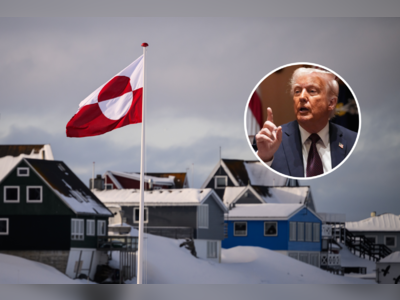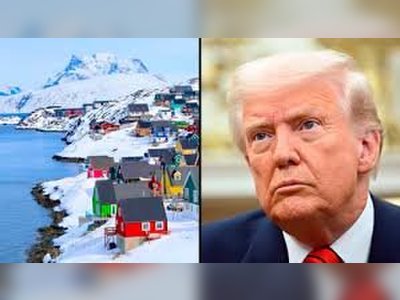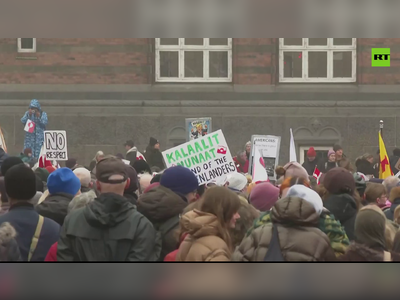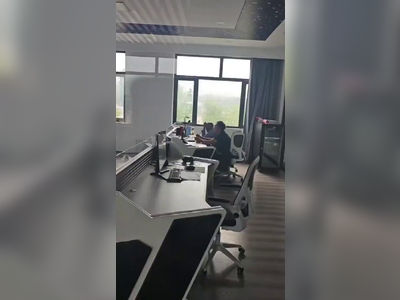Italy's Diplomatic Balancing Act: Meloni and Trump to Meet in Paris
A high-stakes dialogue poised to redefine Italy's international alliances
In a geopolitical landscape fraught with complexity, Italian Prime Minister Giorgia Meloni's upcoming meeting with former U.S. President Donald Trump in Paris is drawing considerable attention.
Hosted by French President Emmanuel Macron, this diplomatic engagement is freighted with potential implications, not just for Italy but for Europe at large.
Italy has long held a strategic position within transatlantic relations, often acting as a bridge between continental Europe and the U.S. Meloni's government now stands at a crossroads, having to delicately navigate these alliances in an age where global leaders are markedly polarizing.
On one hand, strengthening ties with Trump could serve to bolster Italy's influence across the Atlantic, particularly with conservative circles that still hold sway in American politics.
Yet, this potential rapprochement carries risks.
Embracing Trump might alienate key European partners, who have viewed his tenure with skepticism due to his unconventional political style.
Italy would not want to jeopardize its standing within the European Union, a bloc crucial for its economic and political fabric.
It's a reflective moment reminiscent of the 1960s under Enrico Mattei, who adeptly balanced competing global powers in his foreign policy.
The Meloni-Trump tete-a-tete thus embodies a broader strategic outlook, where the hope is to secure benefits without tipping the balance too far in one direction.
As Italy steps onto this tightrope, the world watches with bated breath.
What unfolds next might very well redefine Italy’s role in the global narrative.
In the words of Italian literary giant Cesare Pavese, 'We do not remember days, we remember moments.' Indeed, this might be a pivotal moment in Italy's diplomatic journey.
Hosted by French President Emmanuel Macron, this diplomatic engagement is freighted with potential implications, not just for Italy but for Europe at large.
Italy has long held a strategic position within transatlantic relations, often acting as a bridge between continental Europe and the U.S. Meloni's government now stands at a crossroads, having to delicately navigate these alliances in an age where global leaders are markedly polarizing.
On one hand, strengthening ties with Trump could serve to bolster Italy's influence across the Atlantic, particularly with conservative circles that still hold sway in American politics.
Yet, this potential rapprochement carries risks.
Embracing Trump might alienate key European partners, who have viewed his tenure with skepticism due to his unconventional political style.
Italy would not want to jeopardize its standing within the European Union, a bloc crucial for its economic and political fabric.
It's a reflective moment reminiscent of the 1960s under Enrico Mattei, who adeptly balanced competing global powers in his foreign policy.
The Meloni-Trump tete-a-tete thus embodies a broader strategic outlook, where the hope is to secure benefits without tipping the balance too far in one direction.
As Italy steps onto this tightrope, the world watches with bated breath.
What unfolds next might very well redefine Italy’s role in the global narrative.
In the words of Italian literary giant Cesare Pavese, 'We do not remember days, we remember moments.' Indeed, this might be a pivotal moment in Italy's diplomatic journey.
AI Disclaimer: An advanced artificial intelligence (AI) system generated the content of this page on its own. This innovative technology conducts extensive research from a variety of reliable sources, performs rigorous fact-checking and verification, cleans up and balances biased or manipulated content, and presents a minimal factual summary that is just enough yet essential for you to function as an informed and educated citizen. Please keep in mind, however, that this system is an evolving technology, and as a result, the article may contain accidental inaccuracies or errors. We urge you to help us improve our site by reporting any inaccuracies you find using the "Contact Us" link at the bottom of this page. Your helpful feedback helps us improve our system and deliver more precise content. When you find an article of interest here, please look for the full and extensive coverage of this topic in traditional news sources, as they are written by professional journalists that we try to support, not replace. We appreciate your understanding and assistance.











